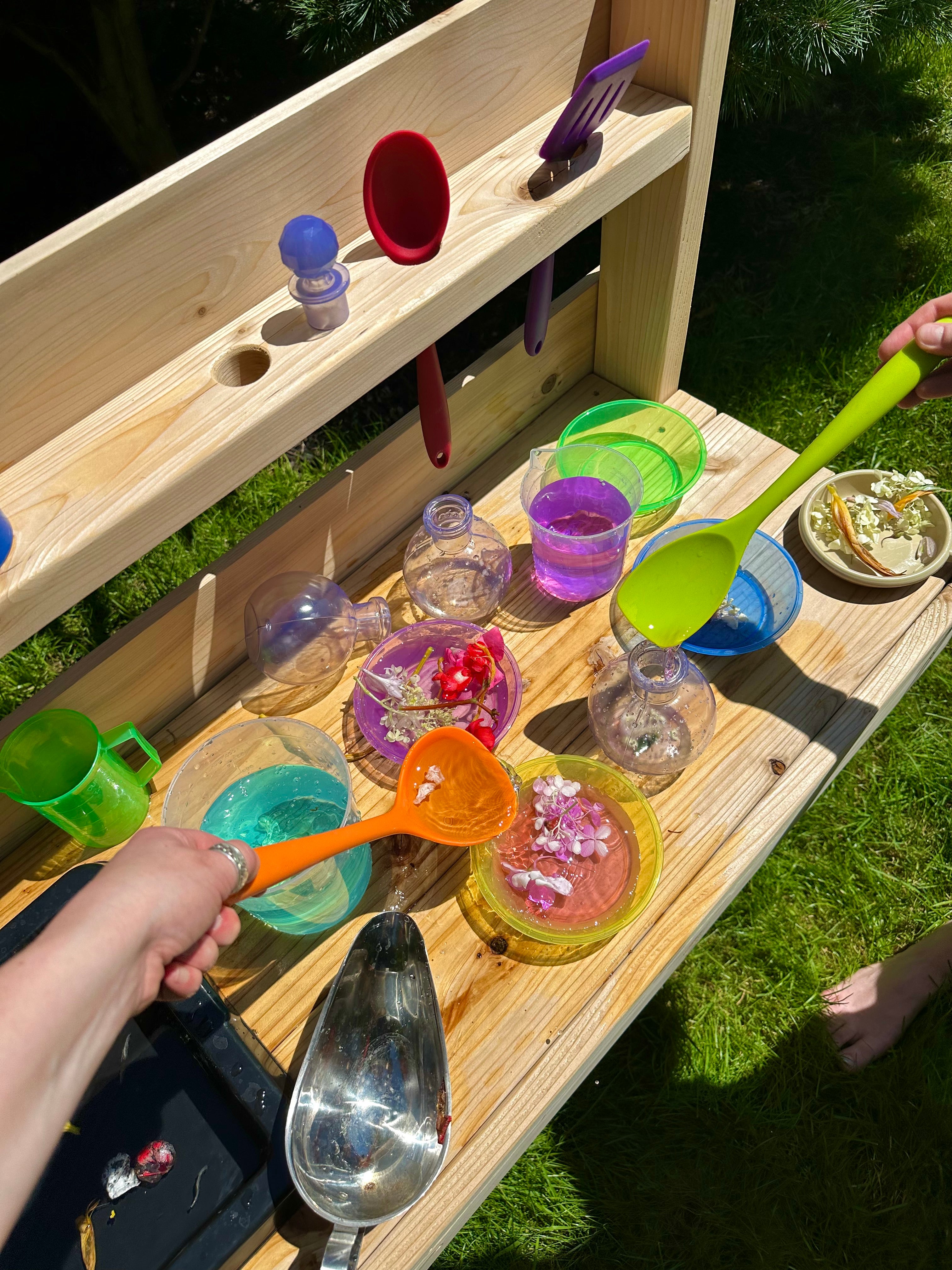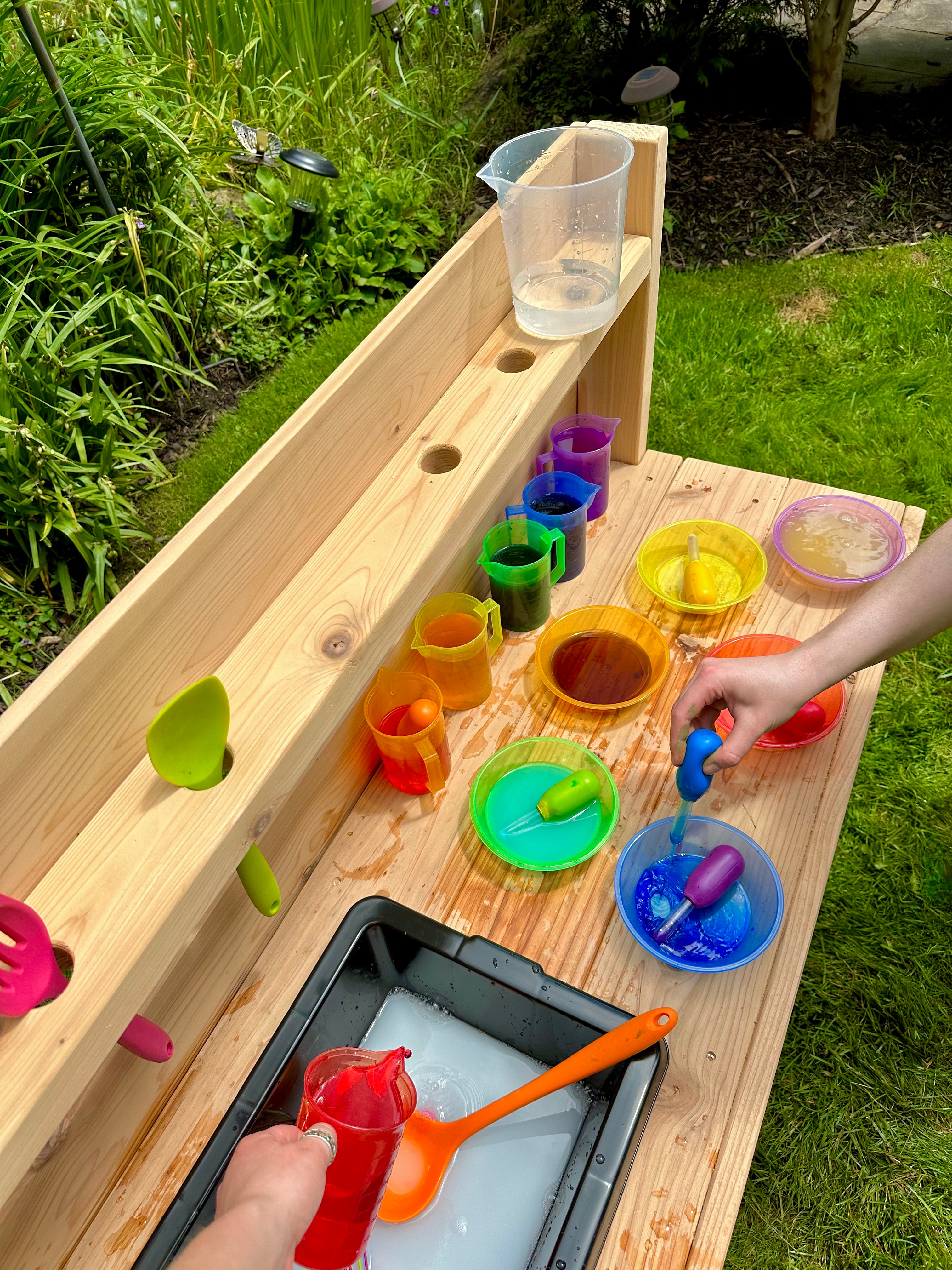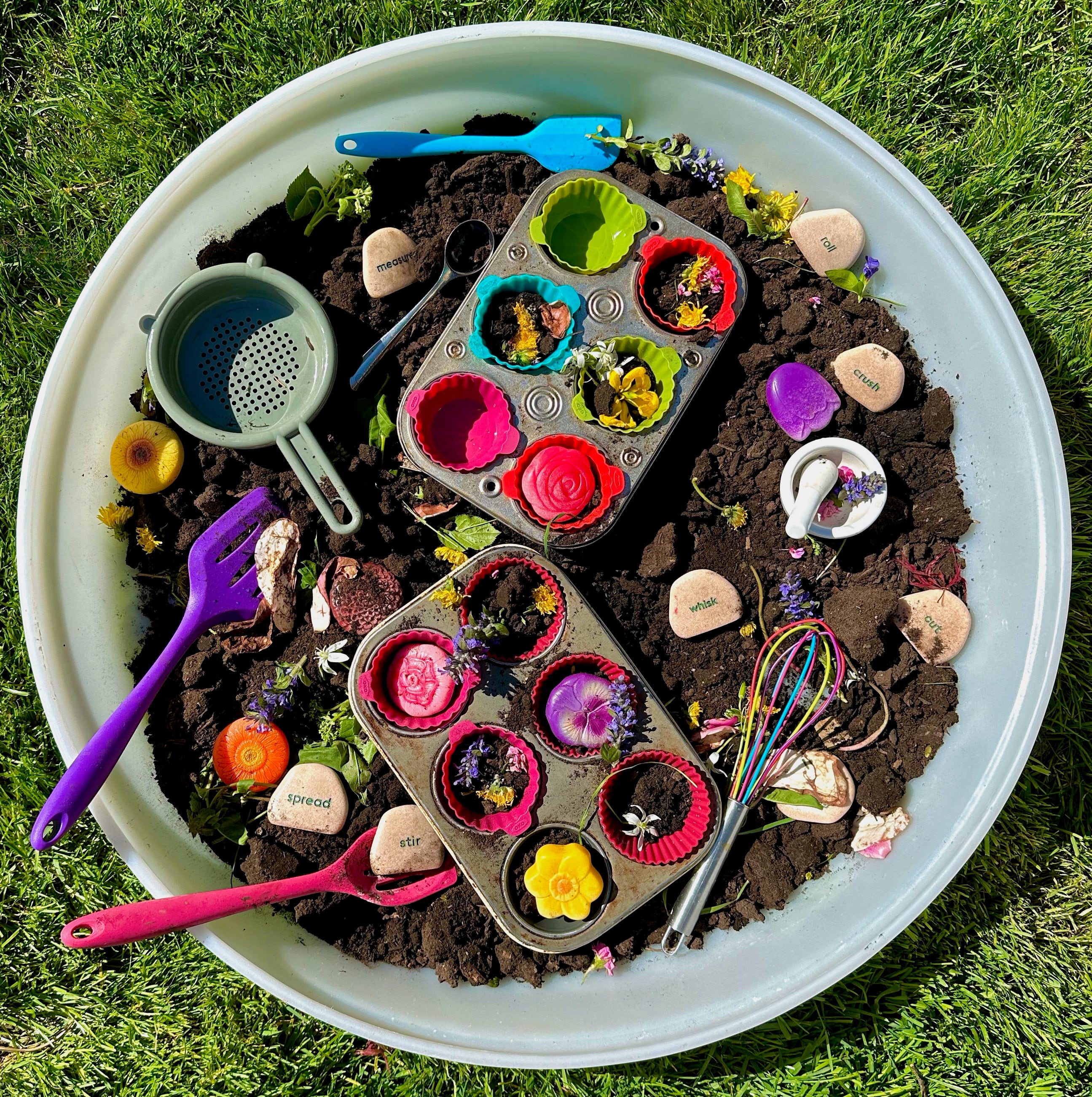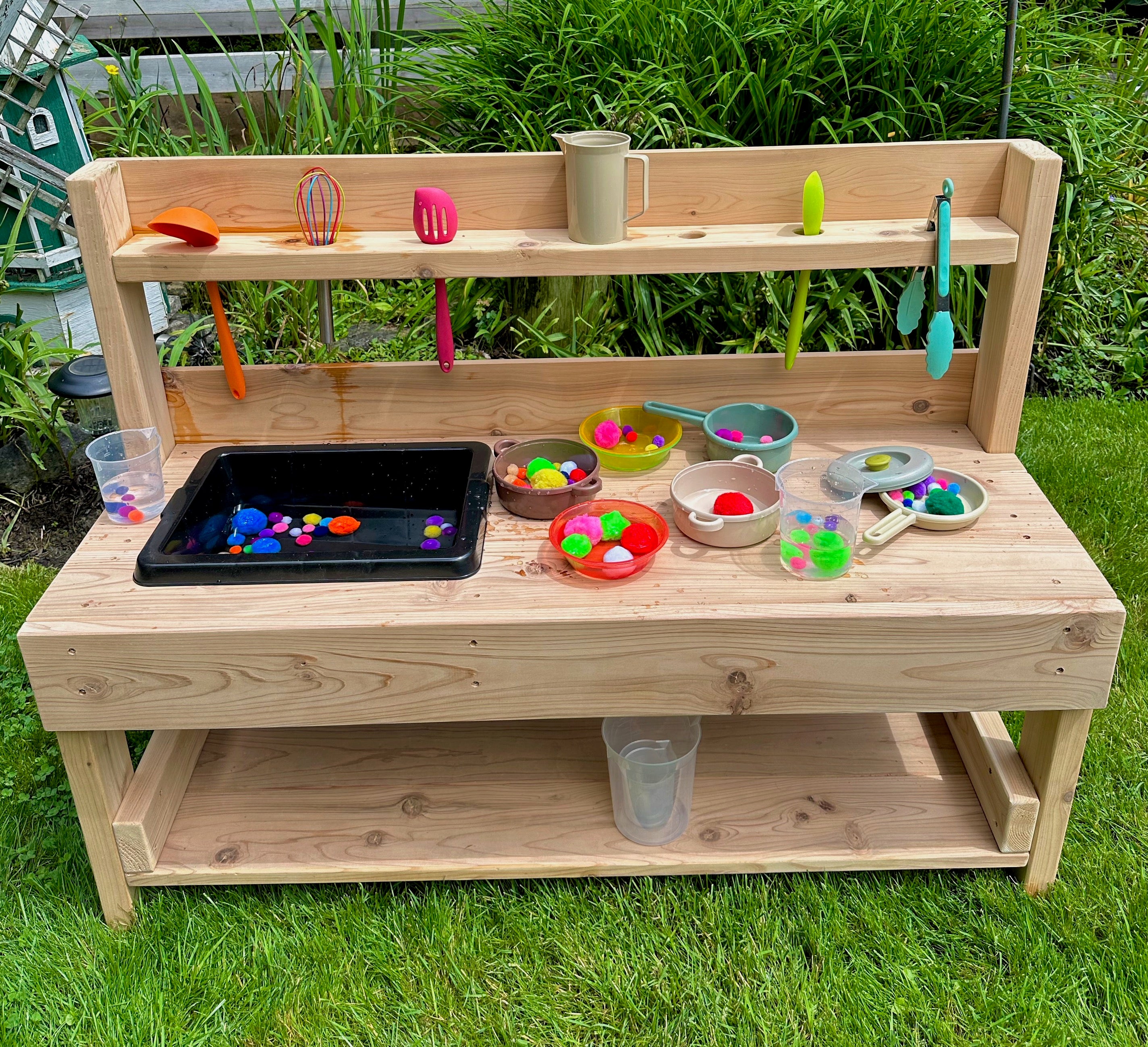Setting up a mud kitchen is relatively simple and can be tailored to fit any outdoor space. Here are some tips to get started: 1) Gather materials: Use old kitchen utensils, pots, pans, and containers that can withstand outdoor conditions. Include items like spoons, bowls, and anything that can be used for stirring and mixing. 2) Create a dedicated space: Whether it’s a corner of your playground or a specific area in your garden, define a space where children can engage in mud kitchen play without interference. 3) Encourage natural exploration: Alongside traditional kitchen items, provide natural materials like leaves, stones, and twigs to enrich the sensory experience. 4) Supervise and participate: While supervision is necessary, participation can also be beneficial. Engage with the children by asking about their recipes, suggesting ideas, or even playing alongside them.
























